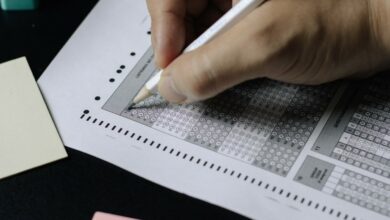How to Increase Your Attention Span While Studying?
You could have wanted to enhance your capacity to focus, if you’ve ever discovered it tough to do a challenging task, prepared for an important exam, or spent some time on picky projects. Attention refers to the cognitive efforts you are making to everything you are now focusing on or studying. It is frequently mistaken with the duration of attention, but the amount of time that you can focus on anything is a matter of concern.
For several reasons, the length of attention and focus may vary. Some folks have to deal with distractions more difficulty. Some factors like age and lack of sleep can also impact your attention span. But, with students, it gets tougher as they have a lot of distractions such as smartphones, games, etc. Let’s explore some of the other factors that entail lack of attention.
What Causes Lack of Attention?
The intellect of man is highly fluttered. Perhaps the first chance it provides itself is highly tendentious to stray away. But, for its unstable character, you cannot truly blame the mind. However, all you could do is to make it more collected and focused. This increases your productivity and makes you extra effective in doing your work. Your focus is the duration you could focus on a task without being diverted easily. Many teachers including counselors believe that it is important for one’s tasks to be performed to concentrate on one activity.
The rise in external stimuli has made it increasingly difficult to maintain concentrated attention during the previous decade. According to most psychologists, however, it is extremely task-dependent. The manner in which we apply our attention relies on the significance of the work, our interest, the stimuli surrounding us, etc. Several of you probably lost attention as you read this article and started browsing around Facebook, reviewing emails, or responding to a question that your children are asking. Children frequently fight to be careful, but they are much more likely to concede until they really attempt if they get a task that they consider demanding or hard.
Students are most prone to losing attention while they are studying or preparing for an examination. Following are some of the tips that can help you out!
Our Top Tips to Increase Your Attention Span While Studying
- Incorporate Physical Exercise
Students who lose interest frequently, perform better if short breaks are offered for active playing. Stopping for a practice ball and breaks into chunks as well as outdoor play periods, may all assist the attention-aided kid to stay focused. A youngster may also be more involved if he starts with 15 minutes of vigorous playing before an arduous activity or study session.
- Adjustment in Time:
If you discover that the children can’t seem to remain in an activity, regardless of what you are doing, it might be a chance to break down the material in smaller periods. Furthermore, for 2 to 5 minutes per year, youngsters may focus on one task.
If all or any of your pupils need to alter the time frames, do so. The learner suffering from focus must, with time, demonstrate his/her work after just a brief duration. This breaks the job and makes it possible for the youngster to continue working unabated.
- Avoid Being a Multitasker:
You should quit doing that now when you are someone who wants to accomplish multitasking. Try to achieve one objective at a time, instead. While you may feel like multitasking, it’s precisely the opposite that helps you achieve more work. You need to spend a little additional time repeating part of your work to know where you left off if you are continuously changing between activities.
This changes your concentration and dilutes your attention. You wind up spending more time doing things rather than doing them quickly. This creates tension and anxieties. Concentrate on one subject while studying and make it simpler to attain your goals quicker, and to acquire a laser-like focus.
- Take out time for Exercise:
Training can not only enhance your fitness; it boosts your concentration, and you may take a brief leisure stroll. Physical activity enhances cognitive regulation. Students with ADHD who take part in 20 minutes of moderate training could focus on more and better academic performance assessments, particularly in the area of understanding reading.
Sleep is Crucial:
Proper sleep is very necessary to stay focused while studying. But today, for different reasons, many of us stay up late. This leads to many issues such as tension, anxiety, and poorer concentrations. The outcome is various difficulties such as tension, anxiety, and reduced levels of focus. It also bogs down your response time, making continued focus-oriented tasks such as driving exceedingly risky.
With the right amount of sleep, your brain strengthens the interconnections among cells, reactivates ancient memories as well as transmits the information from the brief to the lengthy period. You awaken, therefore, with a new mindset and a greater focus, this makes studying much easier.
A Final Word:
A robust focus may help you be so much more creative, more cooperative, and much more successful in your academic careers. It might be as easy as changing some basic daily routines to ensure that you get adequate sleep and consume the appropriate diet. Try to set smaller targets and eliminate distractions if this does not work. Changing your point of view to boost your interest in what you are doing at the present might make you believe that it is wherever your focus is needed.
Studying is the kind of process that demands unwavering focus and attention. But, many elements make it hard to stay focused while studying. The key is to eliminate those distractions and take out some time to relax your mind before training it to stay focused while you study.
We would highly recommend you incorporate some healthy changes in your lifestyle, and put in a conscious effort to stay focused. Increasing and maintaining your focus while studying is not that difficult as it appears.




